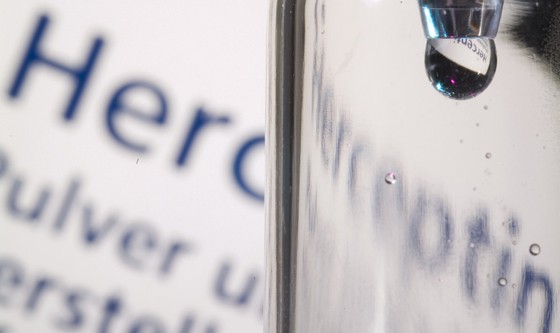
Roche has failed to secure additional patent protection for its breast cancer therapy Herceptin in India because it did not follow the correct filing procedure, according to the Indian government.
Three additional patents filed in support of Herceptin (trastuzumab) intellectual property have been declared withdrawn or abandoned, because documents were not filed within deadlines and company representatives failed to attend hearings challenging the intellectual property (IP), according to a statement from the Kolkata Patent Office, which insists the patents have not been revoked.
The unusual public comment on the case suggests that India’s authorities are becoming sensitive to allegations that the country is using numerous tactics to undermine the IP held by multinational pharma companies.
The Herceptin ruling comes shortly after India revoked a patent granted to GlaxoSmithKline for breast cancer drug Tykerb (lapatinib) under controversial legislation which does not allow patents for incremental innovations, such as new salt forms of active substances.
Roche was awarded an Indian patent on Herceptin in 2007 that extends to 2019, and the additional patents do not extend the time before biosimilar versions could be launched. The depth of Roche’s IP for Herceptin is however diminished, weakening its ability to defend the drug from patent challenges.
The pharma company did not comment on the allegations of procedural lapses but told Reuters it was considering its next steps.
Compulsory licensing threat looms
A much bigger threat to Herceptin in India is that of compulsory licensing, which was used to clear the path for low-cost versions of Bayer’s Nexavar (sorafenib) earlier this year.
There was some positive news for Roche last month after India’s Department of Industrial Policy and Promotion (DIPP) turned down a request for compulsory licensing of trastuzumab lodged by a consortium of patent groups and non-governmental organisations (NGOs), at least temporarily.
The DIPP ruling went against the wishes of India’s health ministry in denying the petition, however, and local media reports suggest the threat of a compulsory licensing for Herceptin has not passed.
The Economic Times suggested yesterday, for example, that the DIPP is checking to see whether companies within India’s domestic drug industry are actually ready to manufacture trastuzumab before taking a final decision.
Moreover, even if the compulsory license is refused, it has been suggested that India’s health ministry may try to use Section 66 of the patent act to revoke Roche’s IP on Herceptin “in the public interest”.
The clause has been invoked rarely – and never for a medicine – and the government would likely face a lengthy legal battle in order to prove that Herceptin’s price is prejudicial to the Indian public.




